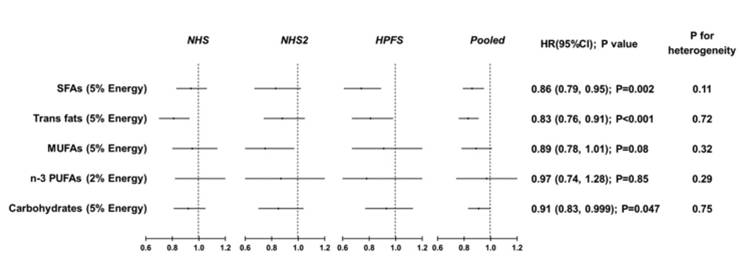Linoleic Acid Intake Inversely Associated with Risk of Type 2 Diabetes
Recently, Prof.ZONG Geng from Shanghai Institute of Nutrition and Health (SINH) of Chinese Academy of Sciences(CAS), together with researchers from the Harvard T.H. Chan School of Public Health, reported participants with high habitual intake of linoleic Acid (LA) had lower risk of type 2 diabetes in the future. The study was published on Diabetes Care.
LA, an essential fatty acid, is the dominant n-6 polyunsaturated
The current study followed 214,028 U.S men and women from three large on-going prospective cohort studies: The Nurses’ Health Study (NHS), NHSII, Health Professionals Follow-Up Study (HPFS). N-6 PUFA intakes were estimated based on the data collected through validated food frequency questionnaires administered every 2 or 4 years and updated food composition databases.
To represent long-term diet better, researchers calculated cumulative averages of diets from baseline to the end of follow-up. Self-reported incident diabetes during follow-up was confirmed using a validated supplementary questionnaire.
During 4.93 million person-years of follow-up, 18,442 T2D cases were documented. Of note, LA accounts for >98% of total n-6 PUFA while, arachidonic
Overall, the research suggested that increasing dietary LA at the expenses of unhealthy fats and carbohydrates may facilitate the prevention of type 2 diabetes.
This study was sponsored by the National Institutes of Health, Unilever R&D and the Chinese Academy of Sciences.

HRs for type 2 diabetes, with LA substituting for energy from other macronutrients.
(Image provided by Prof. ZONG Geng's group)
Media Contact:
WANG Jin (Ms.)
Shanghai Institute of Nutrition and Health,
Chinese Academy of Sciences
Email: sibssc@sibs.ac.cn
